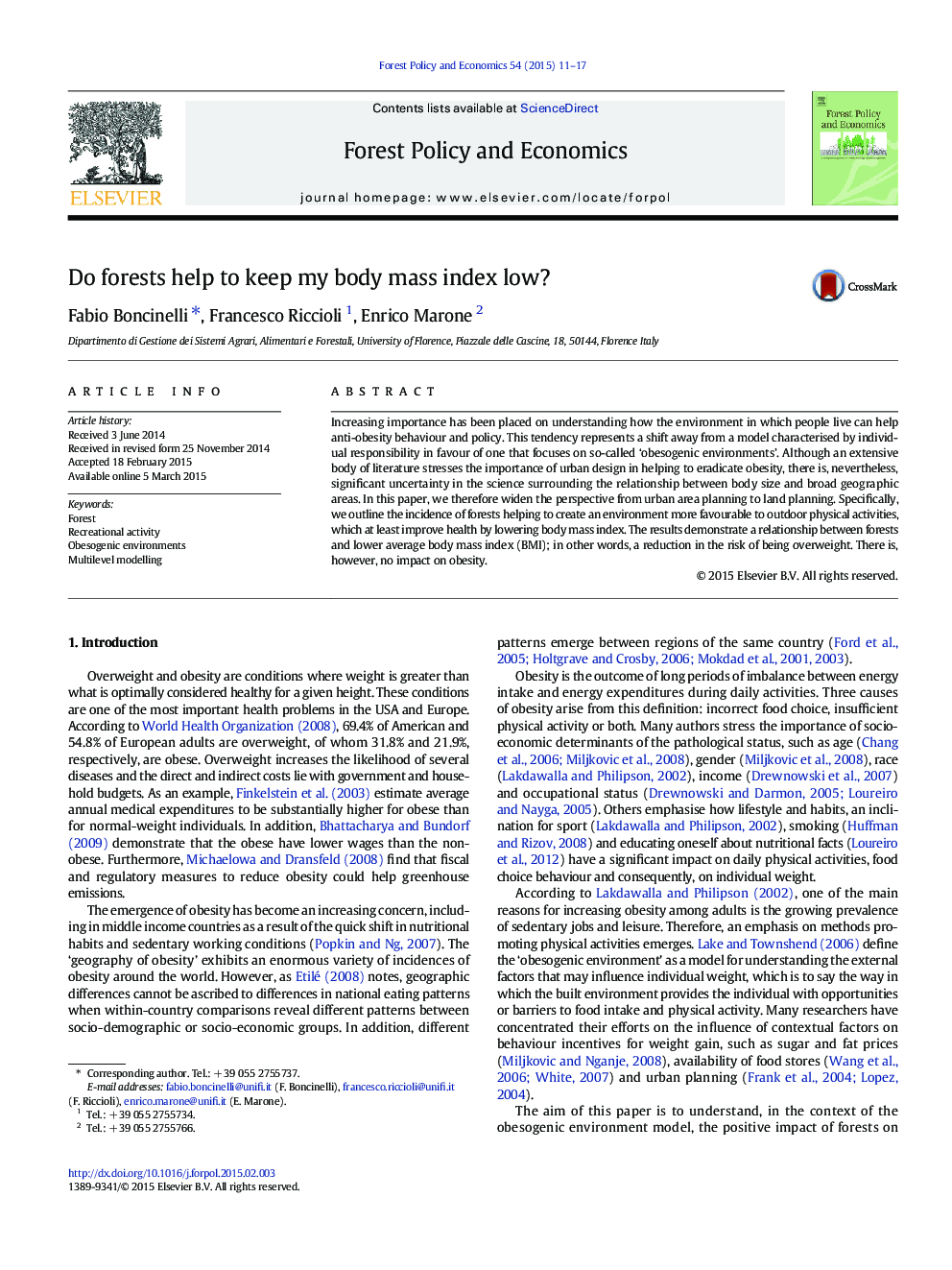| Article ID | Journal | Published Year | Pages | File Type |
|---|---|---|---|---|
| 91191 | Forest Policy and Economics | 2015 | 7 Pages |
•Recreational use of forest could have a positive impact on health status.•The access to forest implies a reduced risk of being overweight.•There is a no significant effect of forest cover on the probability of being obese.
Increasing importance has been placed on understanding how the environment in which people live can help anti-obesity behaviour and policy. This tendency represents a shift away from a model characterised by individual responsibility in favour of one that focuses on so-called ‘obesogenic environments’. Although an extensive body of literature stresses the importance of urban design in helping to eradicate obesity, there is, nevertheless, significant uncertainty in the science surrounding the relationship between body size and broad geographic areas. In this paper, we therefore widen the perspective from urban area planning to land planning. Specifically, we outline the incidence of forests helping to create an environment more favourable to outdoor physical activities, which at least improve health by lowering body mass index. The results demonstrate a relationship between forests and lower average body mass index (BMI); in other words, a reduction in the risk of being overweight. There is, however, no impact on obesity.
